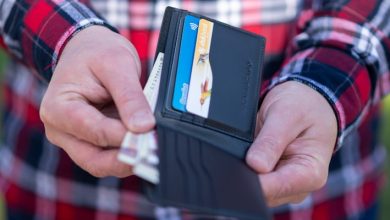Integrating Wallets with Decentralized Finance (DeFi) Platforms

- Understanding the role of wallets in DeFi platforms
- The benefits of integrating wallets with DeFi platforms
- How wallets enhance user experience in DeFi
- Security considerations when integrating wallets with DeFi platforms
- Popular wallet options for seamless integration with DeFi platforms
- Future trends in wallet integration with DeFi ecosystems
Understanding the role of wallets in DeFi platforms
In the world of decentralized finance (DeFi) platforms, wallets play a crucial role in enabling users to interact with various financial services. A wallet in the context of DeFi is a digital tool that allows users to store, manage, and transact with their cryptocurrencies and tokens securely. Understanding how wallets function within DeFi platforms is essential for anyone looking to participate in this growing sector of the blockchain industry.
Wallets act as the gateway for users to access DeFi platforms, providing them with the ability to connect their assets to different decentralized applications (dApps) and smart contracts. By integrating wallets with DeFi platforms, users can seamlessly interact with a wide range of services such as decentralized exchanges, lending protocols, and yield farming strategies.
One of the key advantages of using wallets in DeFi platforms is the increased level of security they offer compared to traditional centralized exchanges. With wallets, users have full control over their private keys, ensuring that only they have access to their funds. This added security is vital in a space where hacks and security breaches are not uncommon.
Moreover, wallets also enhance the overall user experience on DeFi platforms by streamlining the process of asset management and transactions. Through wallets, users can easily track their portfolio, monitor their transactions, and interact with different DeFi protocols without having to switch between multiple platforms.
In conclusion, wallets play a critical role in the functionality and security of DeFi platforms. By integrating wallets with DeFi, users can enjoy a more secure and user-friendly experience while accessing a wide range of financial services. Understanding how wallets operate within the DeFi ecosystem is essential for anyone looking to leverage the benefits of decentralized finance.
The benefits of integrating wallets with DeFi platforms
Integrating wallets with DeFi platforms offers a wide array of benefits for users looking to maximize their financial opportunities in the decentralized space. By seamlessly connecting your wallet with DeFi platforms, you can unlock a new level of convenience and efficiency in managing your assets and participating in various decentralized finance activities.
- Enhanced Security: By integrating your wallet with DeFi platforms, you can benefit from the added layer of security provided by your personal wallet encryption and authentication protocols.
- Streamlined Transactions: With your wallet integrated into DeFi platforms, you can enjoy faster and more convenient transactions, allowing you to take advantage of time-sensitive opportunities in the decentralized space.
- Access to Diverse Opportunities: Integrating wallets with DeFi platforms opens up a world of diverse financial opportunities, including lending, borrowing, staking, yield farming, and more, all within the same interface.
- Cost-Effective Solutions: By using your wallet to interact with DeFi platforms, you can avoid unnecessary fees and intermediaries, leading to cost-effective solutions for managing your digital assets.
Overall, integrating wallets with DeFi platforms is a strategic move for users looking to optimize their decentralized finance experience, providing a seamless and secure way to access a wide range of financial opportunities in the ever-evolving DeFi ecosystem.
How wallets enhance user experience in DeFi
Wallets play a crucial role in enhancing the user experience in DeFi platforms by providing a secure and convenient way for users to manage their digital assets. By integrating wallets with DeFi platforms, users can easily access their funds, make transactions, and interact with various decentralized applications (dApps) seamlessly. Here are some ways in which wallets enhance the user experience in DeFi:
- Secure Storage: Wallets offer secure storage for users’ private keys, ensuring that their funds are protected from unauthorized access.
- Convenient Access: With wallets, users can easily access their funds anytime, anywhere, without the need for intermediaries.
- Seamless Transactions: Wallets enable users to make transactions quickly and efficiently, allowing them to participate in various DeFi activities with ease.
- Integration with dApps: Wallets can be integrated with different dApps, allowing users to interact with DeFi platforms and access a wide range of financial services.
- Multi-Chain Support: Some wallets support multiple blockchains, giving users the flexibility to manage assets across different networks.
Security considerations when integrating wallets with DeFi platforms
When integrating wallets with DeFi platforms, it is essential to consider security measures to protect your assets from potential risks.
One crucial aspect to consider is the use of secure and reputable wallets when connecting to DeFi platforms. Make sure to choose wallets that have a strong track record of security and are recommended by trusted sources in the cryptocurrency community.
Another important security consideration is the use of multi-factor authentication (MFA) to add an extra layer of protection to your wallet. By enabling MFA, you can significantly reduce the risk of unauthorized access to your funds.
It is also advisable to regularly update your wallet software to ensure that you have the latest security patches and features. Outdated software can be vulnerable to attacks, so staying up to date is crucial for maintaining the security of your assets.
Additionally, be cautious when granting permissions to third-party applications that integrate with your wallet. Only provide access to trusted applications that have a legitimate need to interact with your wallet to minimize the risk of potential security breaches.
By taking these security considerations into account when integrating wallets with DeFi platforms, you can help safeguard your assets and minimize the risk of unauthorized access or theft. Remember to prioritize security at all times to protect your investments in the rapidly evolving world of decentralized finance.
Popular wallet options for seamless integration with DeFi platforms
When it comes to integrating wallets with decentralized finance (DeFi) platforms, there are several popular options that offer seamless compatibility. These wallets are designed to provide users with a convenient and secure way to access and manage their DeFi assets. Some of the top wallet choices for integrating with DeFi platforms include:
- MetaMask: MetaMask is a widely used browser extension wallet that allows users to interact with Ethereum-based DeFi applications directly from their web browser. It offers a user-friendly interface and strong security features to ensure the safety of your assets.
- Trust Wallet: Trust Wallet is a mobile wallet that supports a wide range of cryptocurrencies, including those used in DeFi platforms. It is known for its ease of use and accessibility, making it a popular choice among DeFi enthusiasts.
- MyEtherWallet: MyEtherWallet is a web-based wallet that allows users to store, send, and receive Ethereum and ERC-20 tokens. It can also be used to interact with DeFi platforms, making it a versatile option for those looking to participate in decentralized finance.
These wallets are not only compatible with a variety of DeFi platforms but also offer additional features such as decentralized exchanges (DEXs) integration, token swaps, and staking capabilities. By choosing one of these popular wallet options, users can streamline their DeFi experience and take full advantage of the opportunities offered by decentralized finance.
Future trends in wallet integration with DeFi ecosystems
As DeFi continues to gain popularity and adoption, the integration of wallets with these ecosystems is expected to evolve in the coming years. One future trend is the seamless integration of multiple wallets within a single DeFi platform, allowing users to access their assets from different wallets without the need for manual transfers. This will enhance user experience and streamline the process of interacting with DeFi protocols.
Another trend to watch out for is the increased security measures implemented in wallet integrations with DeFi platforms. With the growing number of hacks and security breaches in the DeFi space, wallet providers will focus on enhancing the security features of their wallets to protect users’ funds. This may include implementing multi-signature authentication, biometric verification, and other advanced security protocols.
Furthermore, the future of wallet integration with DeFi ecosystems may also see the rise of decentralized wallets that are fully non-custodial and give users complete control over their private keys. These wallets will prioritize privacy and security, offering users a more secure way to interact with DeFi platforms without relying on third-party custodians.



